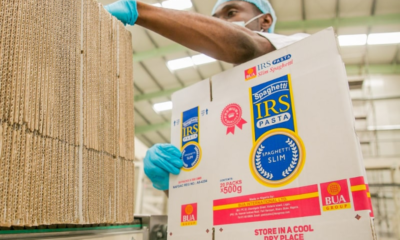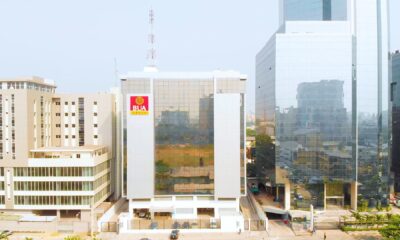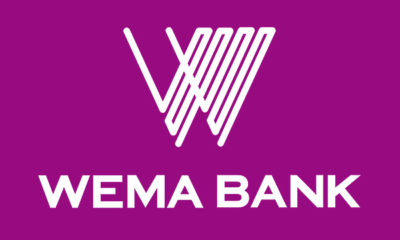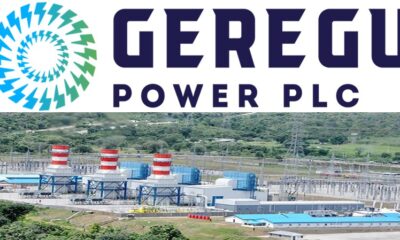BUA Foods, one of Nigeria’s leading food processing companies, has announced a 90.63% year-on-year revenue growth of ₦320.9 billion in the first half (H1) of 2023, up from ₦168.8 billion in the same period last year.
The company’s strong performance can be attributed to its strategic initiatives, including an 80% surge in Sugar sales, a remarkable 154% increase in Flour sales, and a substantial 47% growth in Pasta sales, the company stated in its unaudited financial statement.
BUA Foods‘ Sugar segment grew to ₦196.5 billion in H1 2023 from ₦109.1 billion in H1 2022 while the flour division contributed ₦86 billion to the company’s revenue, an improvement from ₦33.9 billion recorded in H1 2022.
The Pasta segment also played a significant role in the overall revenue surge, generating ₦37.9 billion in H1 2023 from ₦25.8 billion filed in H1 2022.
Another crucial driver of BUA Foods’ revenue growth was the revamped rice division, which contributed ₦466 million to the company’s top line during the same period. The strategic focus on selling price adjustments, coupled with a notable increase in sales volume and an expanding export market, bolstered the company’s revenue in the period under review.
While the revenue milestone is commendable, BUA Foods also faced challenges in managing its cost of sales, which rose by 61.1% to ₦188.1 billion in H1 2023 compared to ₦116.7 billion in H1 2022. The surge in the cost of sales was primarily driven by escalating raw materials costs, increased factory expenses, and higher energy costs.
However, despite these challenges, the company managed to achieve a remarkable 155% increase in gross profit, soaring to ₦132.8 billion in H1 2023 from ₦52.1 billion in H1 2022.
To support its ambitious sales expansion plans and accommodate the surge in sales volume, BUA Foods allocated additional resources to selling and distribution expenses, resulting in an over 200% increase to ₦12.8 billion in H1 2023 from ₦4.2 billion in H1 2022.
The company also reported a 164.5% rise in administrative expenses, amounting to ₦5.0 billion in H1 2023 compared to ₦1.89 billion in H1 2022.
It is important to note that this increase included higher salaries and wages, which grew by 114% to ₦1.15 billion and other general expenses, which surged by 362% to ₦0.69 billion. Bank charges constitute ₦864 million, adding to the overall administrative expenses.
Despite the challenges faced, BUA Foods managed to achieve a 147.61% growth in operating profit of ₦115.8 billion in H1 2023 from ₦46.8 billion in H1 2022. This feat was attributable to strategic initiatives, including price adjustments, local market expansion efforts, and an increasing presence in export sales.
Also, the company’s operating profit margin appreciated significantly by 839 basis points to 36.1% in H1 2023 from 27.7% in H1 2022.
Moreover, BUA Foods’ profit before tax rose by 156% to ₦109.4 billion in H1 2023 from ₦42.7 billion in H1 2022. The company maintained a strong double-digit profit margin at 34.1%, as compared to 27.7% in the corresponding half-year period.
In terms of financial performance, BUA Foods achieved an outstanding 142% growth in profit after tax, reaching ₦95.2 billion in H1 2023 from ₦39.3 billion in H1 2022.
Earnings per Share (EPS) also surged by 142.6% to ₦5.29 in H1 2023, up from N2.18 filed in the corresponding period.
Commenting on the results, Engr. Ayodele Abioye, the Managing Director, said: “BUA Foods Plc continues to deliver solid growth across key business metrics in spite of social economic and political headwinds.
We have sustained returns by consistently executing our unique business strategy through a strong value proposition, expanding frontiers from a market and product offering standpoint with a view to sustain profitable leadership in our sector to create long term value for our stakeholders.
Whilst the impact of foreign exchange loss in H1 has not been significant due to our supply chain hedging strategy, we anticipate a material effect in H2 which will be adequately provisioned for.
However, our business resilience continues to assure impressive margin growth driven by increasing production capacity and capabilities.“
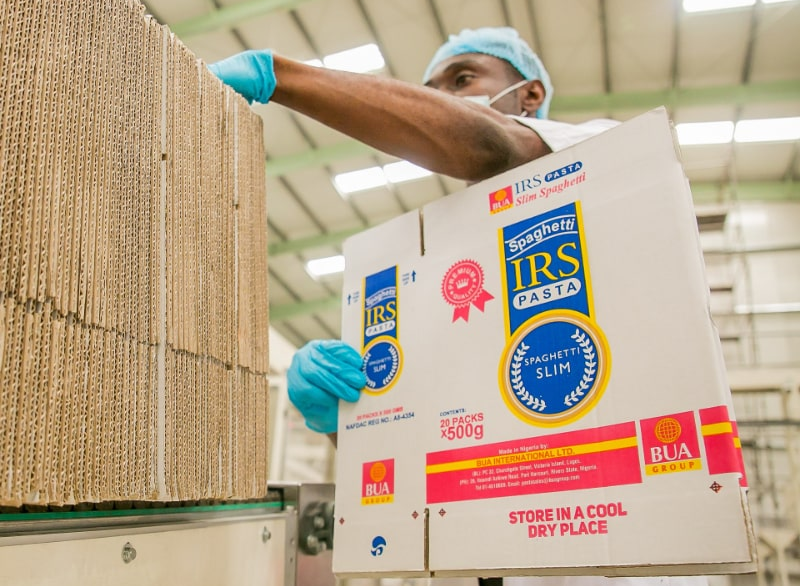



 Forex3 weeks ago
Forex3 weeks ago


 Naira3 weeks ago
Naira3 weeks ago
 Billionaire Watch3 weeks ago
Billionaire Watch3 weeks ago






 Naira3 weeks ago
Naira3 weeks ago






 Naira2 weeks ago
Naira2 weeks ago




 Naira2 weeks ago
Naira2 weeks ago






 Naira1 week ago
Naira1 week ago




 Naira4 weeks ago
Naira4 weeks ago

